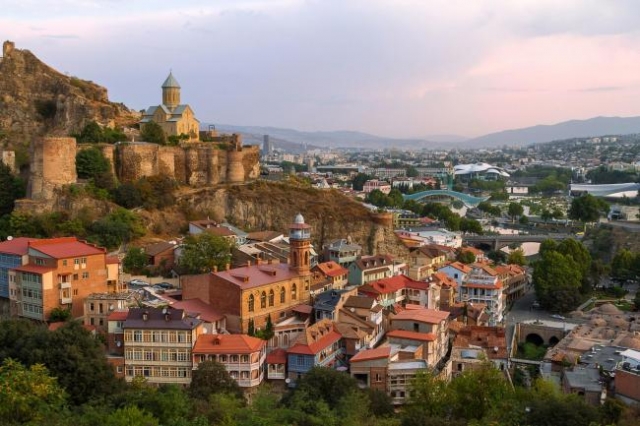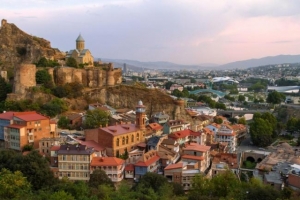Struan Stevenson: Small Country on the Edge of Europe with Bright Future in the EU
Online edition The Herald, covering news, insight, analysis and opinion from Scotland and beyond, has recently published an opinion by Scottish politician Struan Stevenson about Georgia, entitled 'Small Country on the Edge of Europe with a Bright Future in the EU.'
"Georgians went to the polls on October 31 to elect a new parliament, with the ruling Georgian Dream party winning a resounding victory (48%), over the largest opposition party, the United National Movement (UNM) (27%). Several other opposition parties managed to clear the 1% threshold for membership in parliament. Inevitably the UNM claimed that the elections were rigged and promised to hold protests until a new election is called. Despite opposition complaints, the Organization for Security and Co-operation in Europe (OSCE) said on Sunday that the election had been competitive and fundamental freedoms had generally been respected.
"The ruling party – founded by Georgia’s richest man, the philanthropist Bidzina Ivanishvili – said it had received enough votes in the heavily contested election to form a single-party government in the Eastern European country. But Georgia has been hit hard by the coronavirus pandemic, with its economy set to shrink by 4% this year. Critics of Ivanishvili claim that he uses his vast wealth to run the country of 3.7 million from behind the scenes, as he holds no formal position in government. Although pro-Western and keen to join the EU, Ivanishvili’s Georgian Dream party also wishes to improve relations with Russia.
"The main opposition, the UNM, was originally founded by Mikheil Saakashvili, the enfant terrible of Georgian politics. Saakashvili, a former president of Georgia, was stripped of his Georgian citizenship by his arch-nemesis, Ivanishvili. Saakashvili fled to Ukraine and in 2018 was sentenced to three years imprisonment in absentia by Tbilisi City Court, for crimes that he claims are bogus and politically motivated. Saakashvili has called for a "massive mobilization" of the Georgian opposition parties, urging supporters to take to the streets to protest against the election results. It is highly unlikely that Saakashvili will manage to provoke a new ‘rose revolution,’ like the one he led in November 2003, which ousted the former Soviet leader Eduard Shevardnadze and ultimately installed him in his place," reads the publication.
The author notes that since emerging from the collapsing Soviet Union in 1991, Georgia has increasingly looked westwards, exacerbating tensions with its biggest neighbor, Russia, which strongly opposes Georgian aspirations to join the EU and NATO and fears increased US economic and political influence in the country.
"Georgia’s current crop of politicians are ready to face this challenge from their aggressive neighbor. They are predominantly young, highly-educated, competent, articulate and multilingual. From all sides of the political spectrum, there is a sense of optimism; a feeling that Georgia has a great future and that they are determined to make it happen," he points out.
"With Saakashvili in permanent exile, there is a huge support for a new direction in the shape of EU integration. Opinion polls repeatedly show public backing of over 80% and Georgia is considered to be the front-runner in the long list of Balkan and Trans-Caucasian countries vying to join the EU and NATO. The EU has reciprocated by spending a generous €120 million annually in Georgia. Nevertheless, 50% of the Georgian economy still relies on agriculture and there is a huge disparity between the per capita GDP of £15,000 per year in the capital Tbilisi, and the paltry £1,500 in most rural areas. Serious efforts have been made to tackle poverty and corruption and there is a clear understanding among all of the political parties that rural, agricultural poverty will have to be confronted," reads the article.
The author emphasizes that the re-elected Georgia Dream party will have a major challenge to resolve its conflict with Russia and negotiate a successful bid to join the EU and NATO.
"For a small country with a population of under 4 million, Georgia looks well placed to fill the EU vacancy left by Britain," he concludes.
Source: heraldscotland.com
Image: Narikala Castle and view over Tbilisi, Georgia












